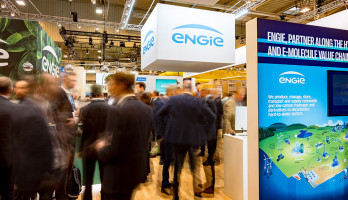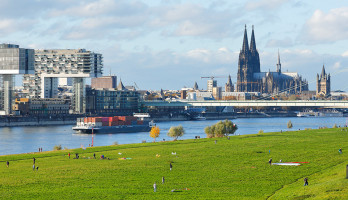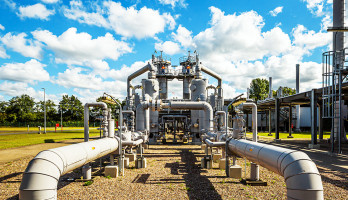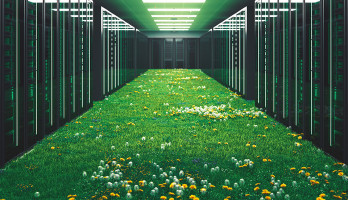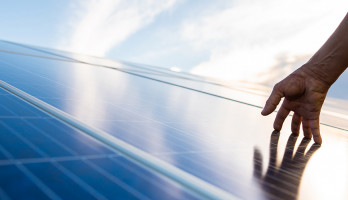
The European Green Deal - a boost for the energy renovation of existing buildings
With the Green Deal, the European Commission created the visionary superstructure in 2019 to make Europe the first carbon-free continent. 50-55 percent less CO2 emissions compared to 1990, is the more stringent target. The building sector is one of the largest energy consumers in Europe. In this context, renovating and significantly increasing the energy efficiency of both public and private buildings is seen as a key initiative to achieve the goals. The figures show how great the potential is in the existing stock: 220 million building units – 85% of the EU building stock – were built before 2001. 85 to 95% of the current buildings will still be standing in 2050. In line with its principle of "energy efficiency first" in the Green Deal, the EU wants to accelerate energy regeneration with a "wave of renovation", including by promoting and financing investments.
Green Deal and Building Energy Act: What is in store for real estate owners?
It's absolutely certain: more pressure, but also additional incentives for measures to increase energy efficiency for more sustainability in buildings. The federal government already presented the new Building Energy Act last year. The Green Deal complements this - a comprehensive package of measures consisting of incentives, subsidies and legal requirements is being prepared to steer real estate owners and investors towards sustainability. The key levers are energy optimization in buildings, decarbonization of heating and cooling supply, and the transition to more environmentally friendly technology. A taste of things to come: the ban on pure oil heating from 2026.
An overview of the most important current implementation projects within the scope of the Green Deal can be found below in our info box.
Fact is: Pressure for action will increase rapidly with new regulations and directives under the EU's Green Deal. Property owners who embrace this change early on and develop a sustainability strategy now will have a head start in preserving the value of their property.
Renovate for energy efficiency, but do it right!
From the boiler room to the facade to the roof, there are numerous starting points to make existing buildings more sustainable. It makes sense to tackle energy efficiency measures in the right order:
- First and foremost is reducing energy consumption wherever possible. Monitoring and smart applications help to operate a building more efficiently. In this step, energetic renovations in the context of space and plant optimization as well as the modernization of windows and facades, for example, go hand in hand. In combination with many other individual steps, such as the conversion to LED in larger properties, this usually already results in significant savings.
- In the second step of energetic refurbishment, the heating and cooling supply must be scrutinized. Much of the equipment is still based on fossil sources such as coal, oil and gas. The selection of efficient and more environmentally friendly solutions is vast.
- For a more sustainable energy supply in buildings, it is also worth taking a look at the roof and facade: Can photovoltaics be used here? If window replacement is worthwhile, how can ventilation and light protection be optimized?
Good to know: Measures to increase energy efficiency in buildings are usually associated with corresponding costs. Intelligent financing models offer the opportunity to start work on energy optimization right now without straining the budget too much.
Using funding programs under the Green Deal
As part of the Green Deal, the Federal Government has redeployed funding for renewable energy promotion programs and for increasing energy efficiency in the building sector. The existing programs in the building sector will be replaced by the new "Federal Funding for Efficient Buildings" (BEG), which will start at KfW on July 1, 2021. Up to 40% of the costs will be funded. The BEG applies to:
- all residential buildings, for example for condominiums, detached and apartment houses or residential buildings
- all non-residential buildings, such as commercial buildings, municipal buildings or hospitals
Attractive alternative: Unlocking energy-saving potentials via contracting models
Those who prefer to invest the budget in their core business, who shy away from financial risk, or who want to keep ancillary costs for their tenants stable or, even better, reduce them, will find what they are looking for in contracting models in which predefined energy savings are guaranteed and the investments are borne by the contracting partner. And there are even models for how energetic renovation can open up new sources of income, for example by renting out the roof space for the generation of electricity from photovoltaics.
With ENGIE Deutschland for tailored solutions for more sustainable use of buildings
As a specialist at the interface between energy, technology and service, we offer our customers business and operational management models tailored to their needs, enabling us to relieve them of the burden of capital expenditure via subsidies or as a contracting partner. In addition, we check in advance whether a combination of several measures – for example, facade refurbishment in conjunction with optimization of building automation and plant technology – is more economical than carrying out individual projects.
Magazine article:
Energy-saving contracting helps boost energy efficiency in buildings
Our Expert



